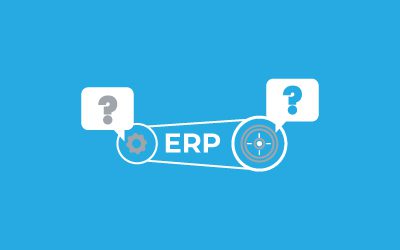Whom should you ask? It’s probably wise to ask these questions twice—once of the vendor and once of a reference customer. That way you’ll pick up any dissonant responses. Also, these questions are in addition to the basics you should ask of any tech vendor, e.g. what are the exact licensing costs? How does support work and much does it cost?
Are you cloud native?
Modern ERP solutions offer cloud editions. In some cases, the entire package is only available on the cloud. However, not all cloud ERPs are alike. Some are cloud-enabled versions of old code. This is not optimal. Instead, it’s worth insisting on cloud-native software. Built for the cloud, it offers the full benefits of the cloud, including flexibility and ease of integration. Learn more in When You Know It’s Time to Move to the Cloud.
Are there dependencies?
If you’re going to have to buy a database, operating systems and so forth to run the ERP, it’s important to know that up front. It may not be a big deal, but it would certainly not be a surprise you would enjoy experiencing.
Are you running legacy code?
Old code is not ideal for today’s ERP requirements. It can cause all sorts of unexpected performance issues, difficulties with scalability, integration and more.
Do you support mobility?
This is now a “must have” capability. People are on the move or working from home. They need mobile access to the full ERP feature set.
What modules do you have?
You may not want or need all of them, at least not right away, but it’s valuable to know what capabilities you can add as you grow.
How easy is it to connect modules?
Do the modules of the solution inter-operate easily? The answer to this seemingly simple question can be surprising. In some cases, even though two modules, e.g. accounting and warehouse management, come from the same vendor, they may not integrate easily.
How complete is your solution?
Your ERP solution should be a complete, or nearly complete operational system for your business—spanning accounting, finance and operations.
How do you support data analytics, data visualization and reporting?
Your ERP solution will generate a great deal of data about your business. You can use this data to make decisions and run the business better, but how easily and effectively you can do this will depend on the quality of the system’s data management and reporting features. Learn more in Making Informed Decisions with the Right ERP.
Do you offer industry versions?
You may want to look at an ERP solution made just for your industry, if such a thing is available. For example, if you’re in construction or distribution, you would want an industry-specific ERP application for that category.
How easy is it to integrate with third party systems?
There is a high likelihood that you will be integrating your ERP solution with outside systems. These may be at your bank or suppliers, for instance. With standards-based (e.g. RESTful) APIs, you can connect your ERP to outside systems with relative ease.
So, tell grandpa to give it his best shot. You can be confident you made a good deal, paid the right price and asked all the right questions while kicking those tires. We can help you with the selection process, as well. Contact us to learn more.
Additional ERP Resources
ERP Software Selection Factors


